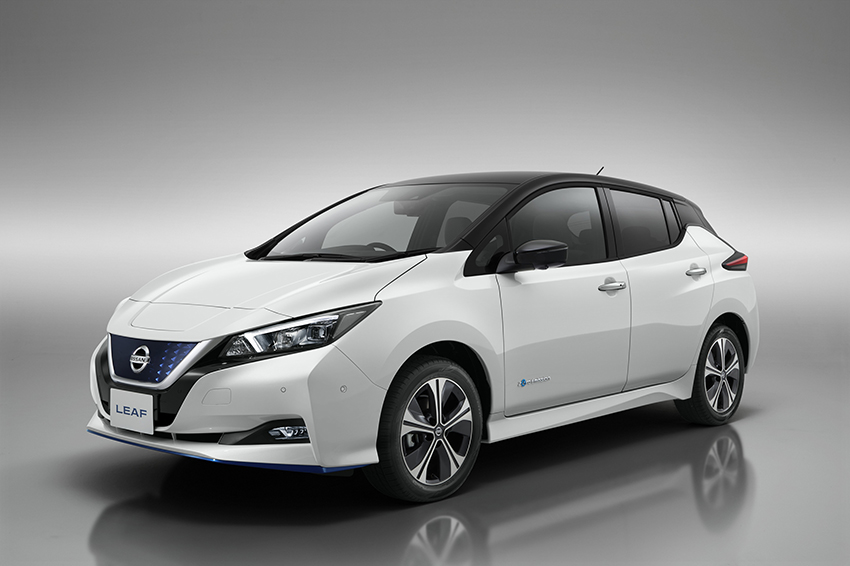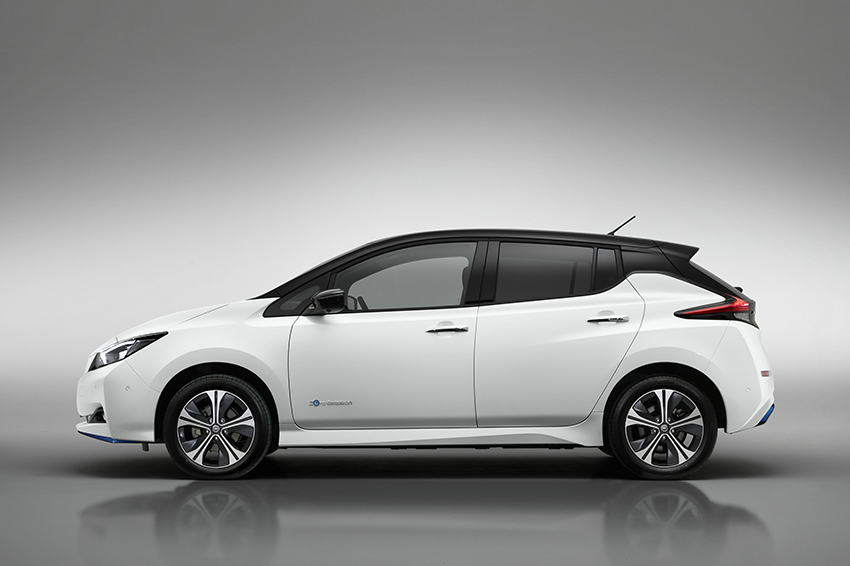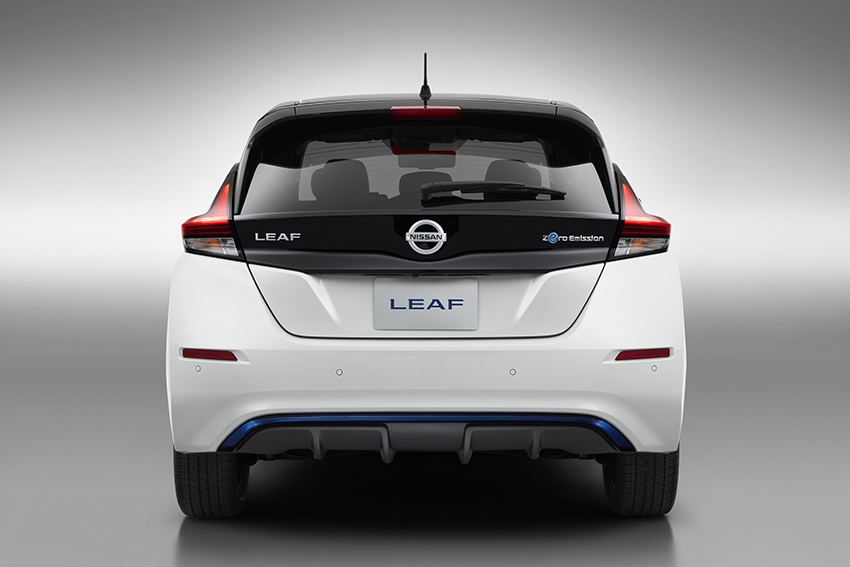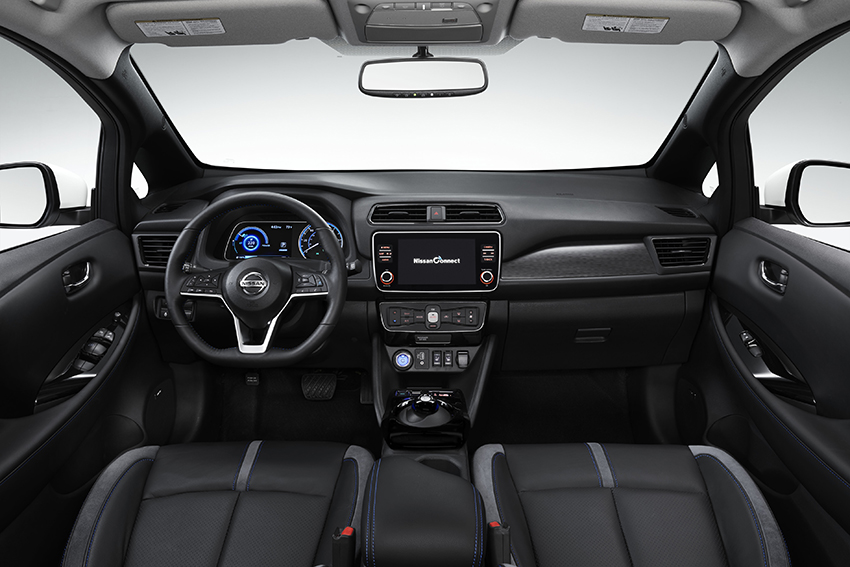
Amongst all the gaming components, laptops, and roll-up TVs that made their first appearance at this year’s CES, car makers have also seized the event to showcase their latest offerings too. Their presence at CES, though perhaps seen as unconventional, comes in the wake of automobile manufacturers choosing to snub traditional specialized events in favour of more consumer-oriented ones. Case in point, the upcoming Detroit Motor Show, a calender highlight for any petrolhead, will go unattended by the three German luxury brands of BMW, Audi, and Mercedes-Benz.

So at this year’s CES, Nissan debuted the latest version of the world’s best-selling electric passenger vehicle, the LEAF. The debut comes after having been delayed since November 19, when Nissan CEO Carlos Ghosn, a key player in the LEAF’s development, was arrested by Japanese authorities for misrepresenting his income.
The updated version of the second generation that launched back in 2017, the LEAF e+ remains the same shape as its predecessors, but has undergone a minor facelift in regards to its headlight cluster, an extended body kit, and a completely revised back-end. It is certainly an improvement and helps make the LEAF e+ look more relatable to the road-travelling public.

But it is under the bonnet that Nissan has been the most busy. The regular 40kWh battery pack has bolstered by an additional 62kWh pack. Despite the increase, the physical size of the power source has remained the same, and Nissan claims that the LEAF has the same charging time as before. The battery pack then feeds into a much larger engine, which produces 150kW of power up from previously 80kW in the South African available model. The result is a claimed range up from 322km, to a whopping 458km between charges. To put that into perspective, that charge could get a Capetonian all the way to George.

Unfortunately, while the Nissan LEAF is expected to go down well in the European and American markets thanks to emission tax kickbacks, the LEAF has struggled to win South Africa over what with a price tag of R479 100, despite it being the cheapest electric car on the market, and the subsequent shortfalls of brand prestige that see people picking a BMW i3 over the Nissan. While it remains to be seen whether Nissan will bring the new LEAF e+, I suspect they will, just without the trim levels that are available up in the states, and with a price tag that goes above and beyond the current one.
Last Updated: January 10, 2019





















Kromas
January 10, 2019 at 12:20
I want one.
Guz
January 10, 2019 at 12:34
Just a quick question, but do we even have places to charge electric cars in SA?
Would you have to charge it at home or are there actual charging stations, if so they must be few and far between
Gavin Mannion
January 10, 2019 at 12:54
I don’t remember seeing any in South Africa. Maybe around Sandton and The CT Bowl but yeah they are not everywhere. Currently here in Milton Keynes every single shop has a few charging stations and all the parking garages have banks of them
HvR
January 10, 2019 at 13:05
Actually there is a market gap here.
Set up a shop with quick charging stations and sell R50 artisanal coffee and overpriced NIssan and BMW merchandise and clothing.
HvR
January 10, 2019 at 12:58
At this stage the target market is the daily commute driver, so your home charging station should be sufficient (8 hours for full charge).
Public charge stations are a bit sparse, which is understandable since IIRC there are less than 1000 EV in South Africa currently. According to google maps 3 in Cape Town, 2 in Pretoria and 1 in Joburg, but know there is one at V&A that is not listed. There is currently a push by Nissan, Jaguar and BMW to have 100 by end of 2019, which includes stations every 100km along N2 between Cape Town and George and N3.
Heard from on our gaming Discord group from a EV owner that his place of work has a charger.
EDIT:
Also saw that pretty much every dealership selling EV have a couple of charging stations.
Guz
January 10, 2019 at 14:22
Wow thats super cool that his work has one
Gavin Mannion
January 10, 2019 at 13:02
holy crap , R480k for a Nissan Leaf. That’s bonkers, mind you I just checked the conversion rate and it’s equal price to the UK version of the car. You do get a R60k government grant for EV cars in the UK though
HvR
January 10, 2019 at 13:05
That last 5% difference is probably due to ad valoruem tax for imported vehicle.
SA government tax you on emissions on new car or tax you on electric vehicle because it is imported. Pretty clear what the motivation is behind emission tax.
HvR
January 10, 2019 at 13:25
Some interesting maths making a lot of assumptions.
102kWh = R260 to fill up for 320km
320km at 8l/100km = R360 now, R420 with highest fuel price
So say at 100km a day will take you about 10 to 16 years to make up the R200k difference for a new similar petrol car in fuel costs.